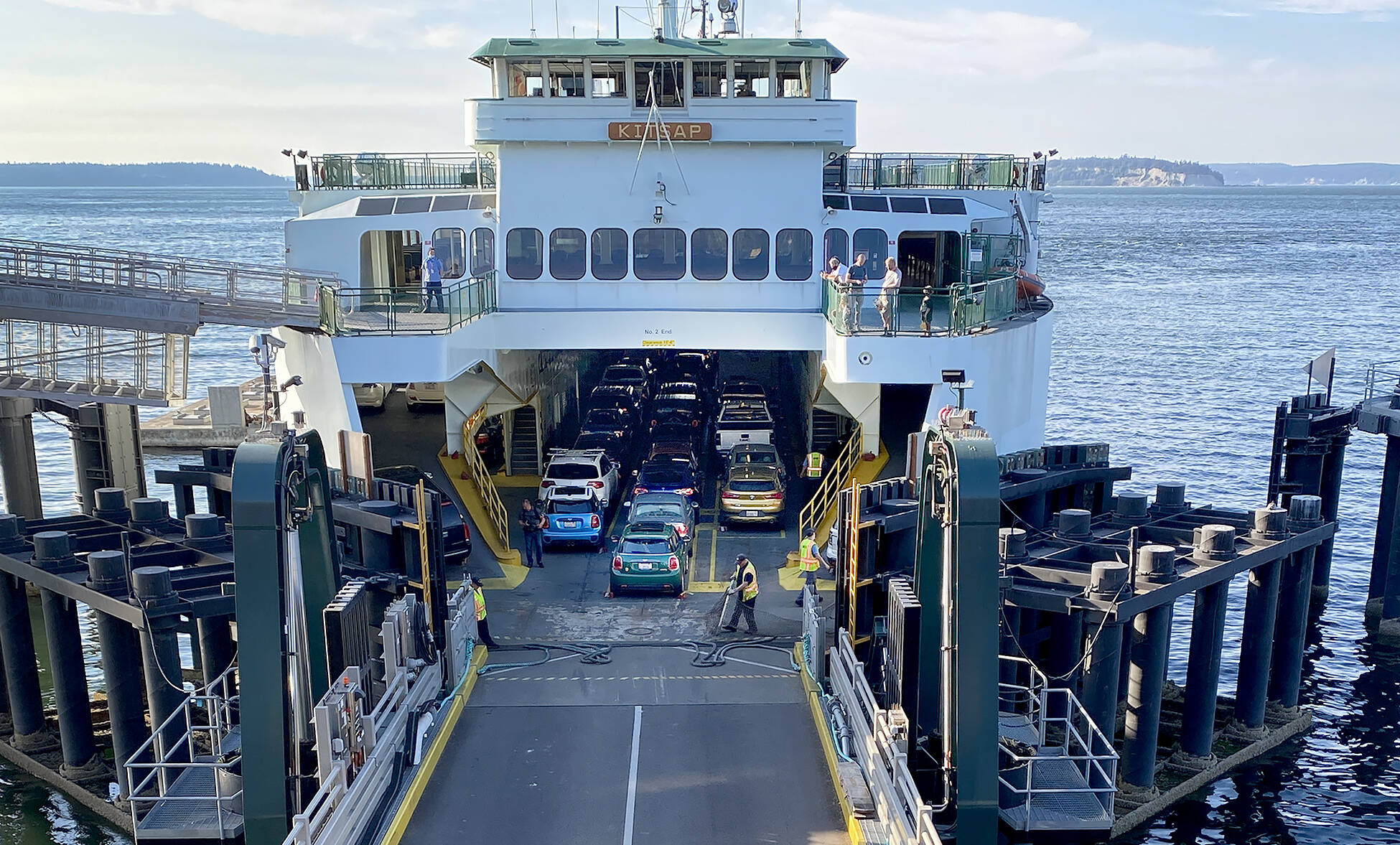One of the ferries on the Clinton-to-Mukilteo route will benefit from an award of $4.8 million in federal funds meant to keep the aging vessels in service years longer.
U.S. Senators Maria Cantwell and Patty Murray, along with U.S. Rep. Rick Larsen, announced the award, which comes through the Federal Transit Administration. The funds will extend the lives of six Issaquah Class vessels built between 1979 and 1982. The work is expected to keep the ferries hauling people for up to 10 extra years.
Among the six ferries to receive work is MV Kitsap, which was built in 1980 and serves the run between Whidbey and Snohomish County. The 328-foot ship can carry a maximum of 124 vehicles and 1,200 passengers, according to State Ferries. The name “Kitsap” is in honor of a Suquamish tribal chief from the 1800s.
The funding is aimed at improving passenger amenities and will primarily be felt by the increasing number of walk-on passengers, according to a statement from the senators.
Specifically, the $4.8 million will fund the installation of new bathroom fixtures, deck coverings, underlayment, countertops, bulkheads, electric lighting and overheads, State Ferries reported. The state Department of Transportation will provide an additional $960,000 for the project.
“Without refurbishment, vessels will continue to deteriorate and service disruptions will become even more commonplace preventing emergency travel and interfering with riders’ ability to access work, school and quality of life amenities,” according to the grant application from the Washington State Department of Transportation.
The grant application described a dire state of the fleet. In 2022, only 43% of the 21 vessels met the target for “State of Good Repair.” From July 2019 to June 2023, a maintenance backlog caused pervasive service disruptions, with each of the six vessels out of operation in shipyards an average of 3.12 months in a year.
The Bipartisan Infrastructure Law, passed by Congress two years ago, provided ferry funding through both dedicated annual funding and competitive grants, according to Larsen’s office.
Since 2021, the law invested $7.9 billion in more than 460 specific projects in the state. In the first year, the state received $42 million in dedicated yearly funding for the ferry system.
At the beginning of this year, the Federal Transit Administration awarded $11.6 million in competitive grant funding to the state for three projects. A grant of $4.9 million was awarded to build an electric charging facility at the Clinton Ferry Terminal.
“Thanks to the Bipartisan Infrastructure Law, WSDOT can upgrade its aging ferry fleet to ensure passengers can safely travel to and from Snohomish County, Whidbey Island, Skagit County, the San Juan Islands and communities across Northwest Washington,” said Larsen. “In Washington state, ferries are a necessity, not a luxury.”
Washington state has the largest ferry system in the nation.



